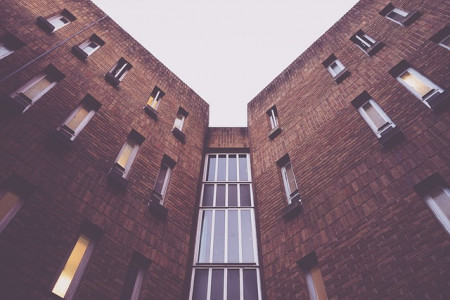Difference between freehold and leasehold
Leasehold and freehold may seem like inconsequential technical terms that you shouldn’t worry too much about. After all, real estate companies don’t really highlight these terms in sales brochures, and property agents rarely talk about them, particularly those trying to sell house fast. In actuality, the difference between these two terms is a crucial aspect of property law. Failure to understand them could lead a very costly mistake.

The majority of flat in London is built on leasehold land. Image courtesy of Pixabay
What is leasehold?
Leasehold is a concept which dates back to the 11th century, when it was still known as freehold. It is a system which allows land owners to monetise their holdings without losing ownership of the land. They typically leased their lands to serfs for a fixed period of time in return for payment or farm produce. Many ancient fortunes were made on the back of this blatantly exploitative system.
It took almost a thousand years before the leasehold system was properly regulated by the government with the passage of the Increase of Rent and Mortgage Interest (War Restrictions) Act of 1915 and 1920.
As UK experienced massive population growth in the aftermath of the two World Wars, demand for new housing led to development of a huge number of flats. However, flats were legally difficult to build on standard freehold land as the division of ownership is almost impossible. How would a land title be divided between flat tenants living above the ground floor?
Fortunately, leasehold came to the rescue. Since leasehold land can be rented out, property companies can create management committees or holding companies for each flat project and nominate them as the signatory in lease agreements. The arrangement proved wildly popular, and to this day, nearly every flat in London is built on leasehold land.
You begin to see the problem now, right? Leasehold titles are not permanent, and ownership remains with the property owners at the end of the lease period, which runs anywhere from 99 to 999 years (although 99 years are the most popular option).
Let’s assume someone built a house on a land with a 99-year lease in 1940. His children subsequently sold the house in 2010 for a good amount of money. The second family however are only legally allowed to stay in that house for another 29 years, as the lease will expire in 1939 (however, there are legal pathways to extend the lease).
Obviously, there are many legal protections in place to prevent buyers of leasehold properties from being exploited. However, the crux of the problem remains the same: their claim to the property on the land and the land itself will only last for the duration of the lease.
Naturally, leasehold properties are cheaper than freehold ones. However, the price differences sometimes are as little as 10%!
What is freehold?
Freehold property grants the title holder ownership to both the property and land in perpetuity. The owners also need not make annual ground rent payments the way leasehold holders are required too.
There are a growing number of real estate developments in the country which are marketing leasehold homes. Buyers should exercise great caution before committing to purchase such properties. Where possible, insist for the lease to be extended first to a reasonable period of time before committing to a purchase.